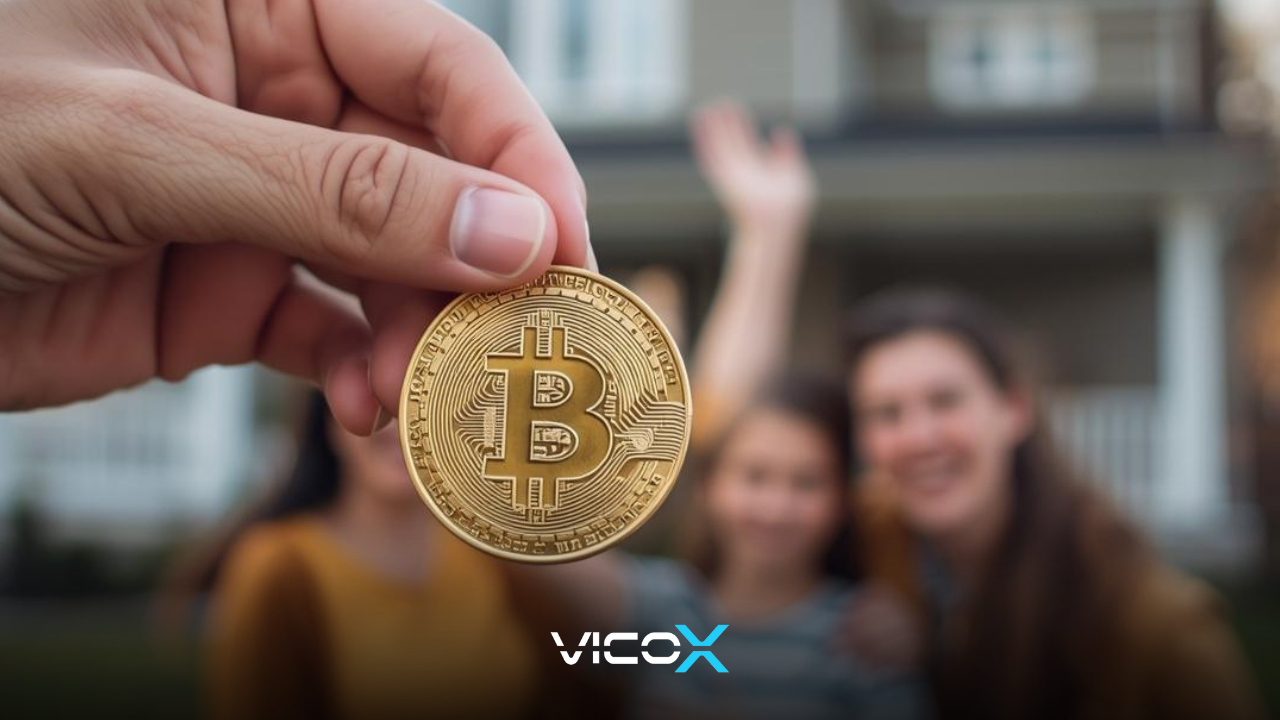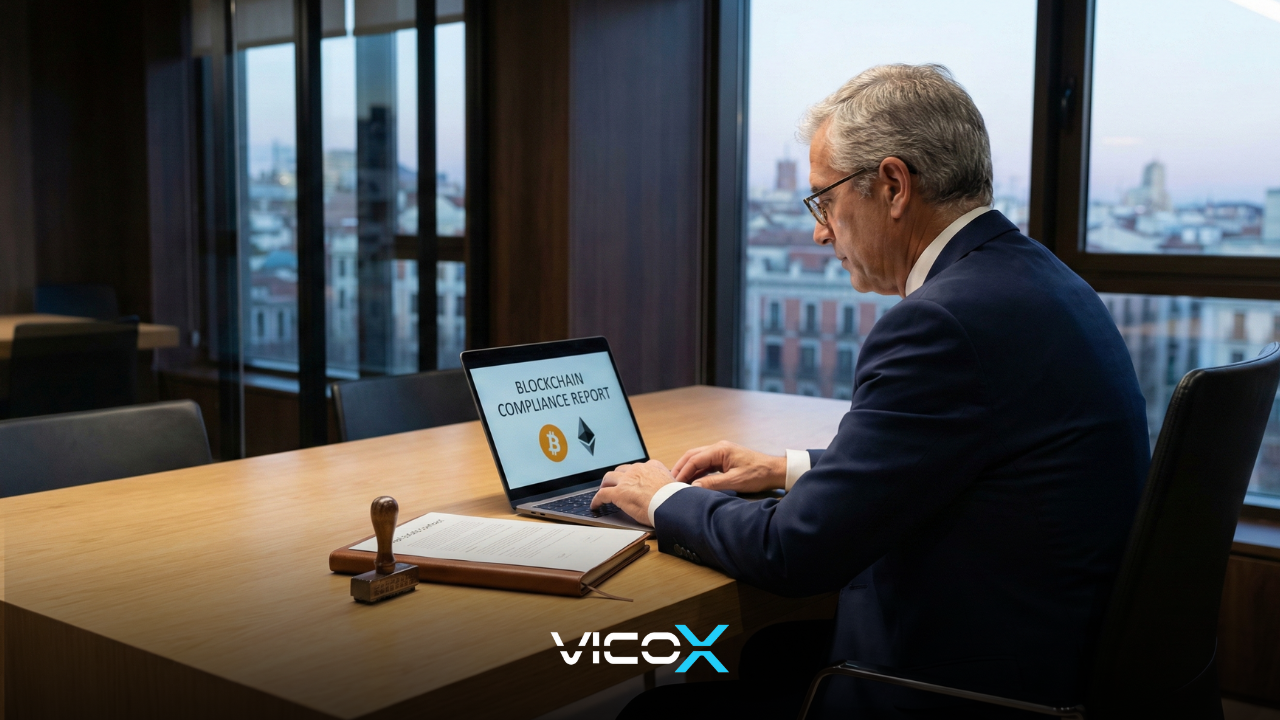

As a society, we are currently immersed in one of the greatest technological changes in history. Digitalisation is imposing itself and growing steadily in all aspects and processes of daily life, so it is not enough to say that we are in a digital era, but the immediate future brings with it important changes that will break all known schemes and paradigms.
A good proof of this is the emergence of cryptocurrencies, which in recent years have experienced exponential growth, which has led banks, organisations and states to take them very much into account, as cryptocurrencies have a series of characteristics as a value proposition, against which fiat money cannot compete.
This explosion of digital assets has reached the real estate market, carrying out different transactions through different cryptocurrencies such as Bitcoin. But how can you buy a property using Bitcoin?
In the following, this article develops some general guidelines, by way of a checklist, to be considered whenever you want to undertake a real estate sale and purchase in Bitcoin, as well as different cases of use at national level and in other countries.
CHECK LIST
As mentioned above, when initiating the purchase of any type of real estate asset with cryptocurrencies, it is essential to assess a series of aspects that set the guidelines for the correct development of the activity.
Legal nature-jurisdiction
The first to consider has to do directly with the legal nature of Bitcoin in the jurisdiction where the transaction is to take place, i.e. whether the digital currency is accepted or not, whether it is considered as a means of payment, a trade item, a unit of account, etc.
Agreement between buyer and seller
As in all types of real estate transactions, an agreement between the buyer and the seller must be reached beforehand, in which a specific day or time must also be set for the exchange of Bitcoin to euros, as this digital currency can be affected by different fluctuations in a short period of time.
Money sourcing and prevention of money laundering
Subsequently, as has been the global trend in recent years, the origin of the money must be checked to ensure that it is not used for money laundering or terrorist financing. As a deterrent and preventive mechanism against this type of illicit activity, the European Community's Anti-Money Laundering Directive, which did not enter into force at the national level until 10 January 2020, includes providers of services with cryptocurrencies as obligated parties.
In parallel, and as a complementary mechanism for regulatory purposes in the fight against money laundering, there is Know Your Customer, which, together with AML, works in the process of identifying users with the ultimate aim of blocking any type of money laundering in a contractual relationship or transaction.
Operational certification
In this type of transactions using digital currencies, it is mandatory to include a notary, who will certify the existence of the two digital wallets of the buyer and seller, as well as the payment in bitcoins from one wallet to another and the market value of the cryptocurrency in euros at the moment when the transaction is to take place.
In addition, the notary must reflect in the notarial deed the alphanumeric code or hash of both the wallets and the transaction.
Taxes
As is well known, any type of sale or transaction of a real estate property is taxed for tax purposes with the ITP, transfer tax when it comes to second homes, and VAT when we are dealing with new sales. Therefore, the fact of making the payment through a virtual currency, such as bitcoin in this case, does not exempt you from the relevant tax obligations.
So much so that it is very important to be aware of the different tax aspects of such a transaction, which will depend on the jurisdiction in which you are located.
CASE STUDIES
In the following, two different use cases will be detailed, and therefore treated from a different perspective or legal nature. On the one hand, mention will be made of the well-known case of Aston Plaza & Residences in Dubai, as well as going into detail on the process to be followed when developing a sale and purchase of a real estate property in Spain.
In the first case, we are dealing with the Aston Plaza & Residences in Dubai, considered to be a luxurious residential mix of some 250,000 square metres, offering different types of 1 to 2-bedroom flats and studio apartments, combined with commercial and leisure spaces.
The complex offered its facilities through its own website, in the form of an e-commerce, which could be likened to a kind of Amazon for the sale and purchase of real estate, in which the prices of the goods were fixed in bitcoin, and anyone interested in a particular flat only had to click and add it to the cart.
It is worth highlighting the important figure of the OTC intermediary, who in this case of use was the one who received the bitcoins and made the payments in euros, i.e. this person acted as the OTC, also acting as the escrow of the money, which guaranteed that the corresponding payment in bitcoin was first issued by the interested party or buyer, and that once the purchase contract was signed, the payment in euros was released to the seller, thus guaranteeing that the transaction was carried out in the safest and most beneficial way possible.
So, in this particular case, as mentioned above, once a first deposit was made, a private contract was signed online, which would be the equivalent of a deposit contract in Spain, and then with the delivery of the rest of the price, the payment is released, along with the delivery of the property, the title deeds and the keys.
Spain
In the case of Spain, if you decide to buy or sell a real estate asset, such as a house, using a digital currency, you must follow a logical sequence of steps in order to carry out the entire process.
Firstly, there must be a prior agreement between the buyer and seller, in terms of the price and exact time of the exchange of bitcoins for euros, and then go to the notary with all the documentation required by Spanish law, for those cases in which a transfer of property is going to be made from one individual to another. In addition, an agreement should be sought with an OTC platform, which in exchange for a percentage of the amount of the transaction, acts as escrow for the money.
From here, the notary comes into play, as he must first define the legal nature of the digital currency, for tax purposes, which in this case in Spain a bitcoin is described as an intangible asset. And then he or she must attest to the affirmation made by the seller and buyer that the electronic wallets of origin and destination truly correspond to the buyer and the OTC intermediary, who will be the first to receive the bitcoins in his or her role as escrow.
Then, at the notary's office, the buyer will transfer the agreed amount in bitcoins from his virtual wallet to the OTC intermediary's wallet. Likewise, the notary will attest that the transaction has been carried out for the agreed price and in the corresponding wallets of origin and destination, providing the Hash of the operation as proof and certification of this.
The notary notarises the deed as an exchange, including warnings for the acquirer that the price fixed in cryptocurrency could be affected by volatility and this circumstance could affect the subsequent valuation of the property before the local administration for the transfer tax ITP, and before the tax authorities for the decrease or increase in assets.
As mentioned above, in this case there is also the figure of the OTC intermediary, who acts as escrow, i.e. he receives the bitcoins directly from the buyer and blocks them until the contract of sale is signed, along with the certification and hash of the same by the notary. And it would be from this precise moment, i.e. when the contract is signed, that the intermediary would release the payment in euros to the seller.
The sale and purchase will not be completed until the seller receives the amount of the sale and purchase, which was in escrow, and the notary again includes the hash of the transaction, certifying the amount in euros from the OTC intermediary's wallet to the seller's wallet, and it will be from here that the sale and purchase of real estate through bitcoins is completed.
Finally, the notary sends the deeds to the registry with the settlement proposal. Once the taxes have been settled, the registrar will make the change of ownership of the property from cadastral reference to the name of the new buyer and it is registered in the land registry.
Currently in Spain, there is only one real estate transaction using cryptocurrency, with its corresponding notarial registration. This transfer was made in Seville with Miguel Prados as the seller, who agreed to sell a storage room by accepting payment in Ethereum (ETH).
Vision for the future
The best way to visualise everything related to the real estate sector and the world of digital currencies would be to start by having a property registry in Blockchain, as is the case in other countries such as Sweden or Georgia. Notaries and registrars would appear as oracles, guaranteeing the correct development of all transactions.
This would also facilitate the registration of all those tokenisations that are being carried out in different countries in such a way that with the guarantee of a collateral asset such as real estate, more liquidity can be provided through secondary markets.




